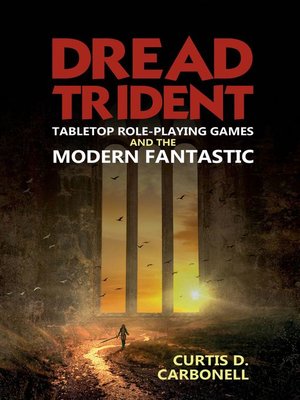Dread Trident
ebook ∣ Tabletop Role-Playing Games and the Modern Fantastic · Liverpool Science Fiction Texts and Studies
By Curtis D. Carbonell

Sign up to save your library
With an OverDrive account, you can save your favorite libraries for at-a-glance information about availability. Find out more about OverDrive accounts.
Find this title in Libby, the library reading app by OverDrive.



Search for a digital library with this title
Title found at these libraries:
| Library Name | Distance |
|---|---|
| Loading... |
Dread Trident examines the rise of imaginary worlds in tabletop role-playing games (TRPGs), such as Dungeons and Dragons. With the combination of analog and digital mechanisms, from traditional books to the internet, new ways of engaging the fantastic have become increasingly realized in recent years, and this book seeks an understanding of this phenomenon within the discourses of trans- and posthumanism, as well as within a gameist mode. The book explores a number of case studies of foundational TRPGs. Dungeons and Dragons provides an illustration of pulp-driven fantasy, particularly in the way it harmonizes its many campaign settings into a functional multiverse. It also acts as a supreme example of depth within its archive of official and unofficial published material, stretching back four decades. Warhammer 40k and the Worlds of Darkness present an interesting dialogue between Gothic and science-fantasy elements. The Mythos of HP Lovecraft also features prominently in the book as an example of a realized world that spans the literary and gameist modes. Realized fantasy worlds are becoming ever more popular as a way of experiencing a touch of the magical within modern life. Reworking Northrop Frye's definition of irony, Dread Trident theorizes an ironic understanding of this process and in particular of its embodied forms.







